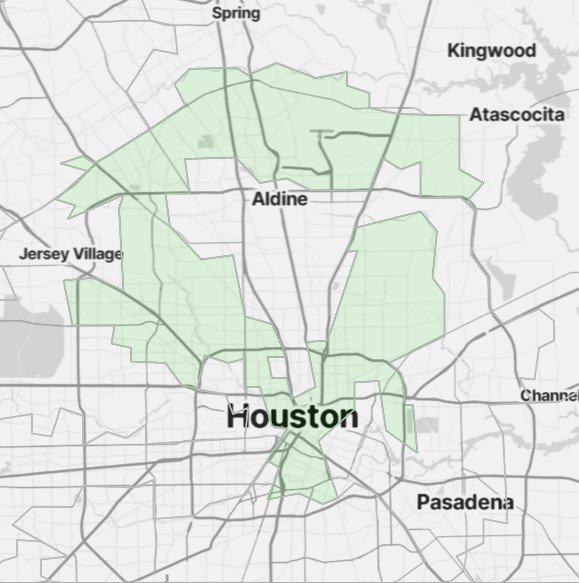TexasŌĆÖ 18th Congressional District Redistricting Sparks Unified Democratic Opposition
Democratic Candidates Highlight Threats to Minority Voting Power
Democratic contenders competing for TexasŌĆÖ 18th Congressional District have collectively expressed deep concerns regarding the stateŌĆÖs newly proposed redistricting blueprint. They argue that the plan fragments historically unified minority neighborhoods, thereby weakening their collective electoral influence. This division, they contend, compromises the foundational democratic principle of equitable representation by prioritizing political maneuvering over the districtŌĆÖs demographic realities. The candidates warn that thousands of voters could be marginalized as a result, potentially altering the political landscape ahead of the upcoming elections.
In response, these candidates advocate for a redistricting process that is transparent, inclusive, and accountable, emphasizing the importance of community participation before finalizing any district maps. Their key demands include:
- Maintaining minority-majority communities to preserve fair voting strength
- Eliminating ŌĆ£crackingŌĆØ and ŌĆ£packingŌĆØ strategies that dilute voter influence
- Establishing independent commissions to oversee and reform redistricting efforts
| Candidate | Main Redistricting Concern | Suggested Remedy |
|---|---|---|
| Maria Gonzalez | Division of minority neighborhoods | Community-driven redistricting committees |
| James Patel | Weakened voter influence | Independent oversight commissions |
| Linda Harper | Political gerrymandering risks | Transparent and open map creation |
Partisan Gerrymandering Concerns and Its Impact on Electoral Fairness
Opposition among Democratic candidates to the recent redistricting proposals centers on fears that the new district lines have been drawn to favor one political party, undermining the democratic process. They argue that the redistricting appears designed to fragment cohesive minority communities, thereby diminishing their electoral power and reducing the competitiveness of elections. This manipulation threatens to suppress voter engagement and skew policy priorities away from the districtŌĆÖs diverse population.
The candidates have underscored several critical issues:
- Deliberate redrawing of boundaries to split unified neighborhoods
- Reduced electoral competition, limiting voter choice
- Systematic underrepresentation of minority groups
- Long-term consequences for equitable policy-making and resource distribution
| Candidate | Stance on Redistricting | Recommended Action |
|---|---|---|
| Maria Gomez | Vehemently Opposed | Advocate for independent commission review |
| James Lee | Opposed | Initiate legal challenges against map approval |
| Angela Martinez | Strongly Against | Launch community awareness and engagement campaigns |
Local Leaders Demand Transparent and Equitable Redistricting Practices
Political leaders within TexasŌĆÖ 18th Congressional District have joined forces to call for a redistricting process that is both transparent and just. They stress that genuine community involvement is essential to prevent gerrymandering tactics that could distort electoral fairness. These officials maintain that ensuring fair representation is fundamental to democracy and insist that any redistricting proposal undergo rigorous public examination before adoption.
Their primary requests include:
- Independent redistricting bodies: To reduce partisan interference and bias.
- Open access to data: Making all proposed maps and demographic statistics publicly available for scrutiny.
- Community forums: Creating platforms for residents to express concerns and contribute ideas.
| Issue | Concern | Proposed Solution |
|---|---|---|
| Gerrymandering | Incumbent advantage skewing elections | Oversight by independent commissions |
| Transparency Deficit | Opaque decision-making processes | Public data sharing and hearings |
| Community Input | Insufficient resident participation | Inclusive town halls and surveys |
Ensuring Electoral Integrity Through Independent Redistricting Commissions
For redistricting commissions to effectively uphold fairness, they must operate with utmost transparency and impartiality. Selecting commissioners through a nonpartisan, open process involving bipartisan panels and public input is crucial to minimizing political bias. Regularly scheduled public hearings and user-friendly online platforms can keep communities informed and engaged throughout the map-drawing stages, fostering trust and accountability.
Moreover, commissions should adhere to clear, enforceable standards that emphasize compact district shapes, preservation of community integrity, and equal population distribution. Leveraging advanced technology and independent statistical evaluations can objectively measure the fairness and competitiveness of proposed districts. These measures collectively protect votersŌĆÖ rights and ensure that electoral boundaries genuinely reflect the districtŌĆÖs diverse population without partisan distortion.
Looking Ahead: The Ongoing Battle for Fair Representation
As the redistricting debate continues to unfold, Democratic candidates in TexasŌĆÖ 18th Congressional District remain steadfast in their opposition, underscoring the significant consequences for voter representation and community interests. With primary elections on the horizon, the conversation around equitable district boundaries is shaping not only this race but also the broader discourse on electoral justice in Texas. Houston Public Media will maintain vigilant coverage, providing in-depth updates on this critical issue as it develops.

